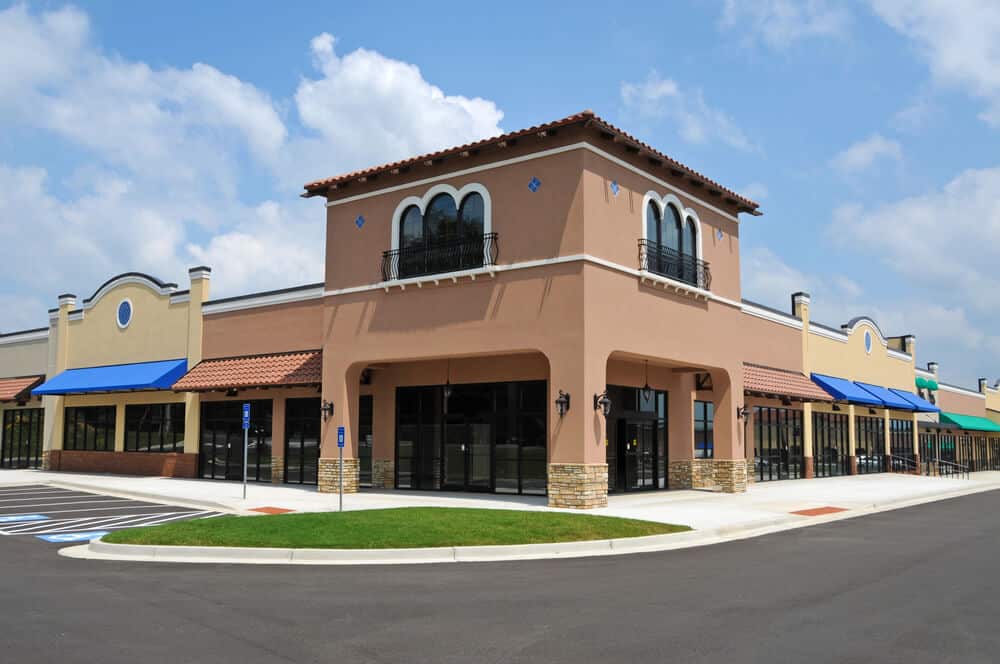Preventing Errors in Commercial Real Estate Ventures in New Jersey
Commercial Property Investment Demands Careful Planning, Research, And Awareness to Avoid Potential Pitfalls
 Buying commercial property is far from easy. It takes thorough planning and research to make the best deal to give you the highest returns on your investment. Providing maintenance or remodeling a space is challenging, especially when waiting for tenants to bring you income. You need to be aware of some essential facts before investing in a commercial property and several pitfalls to avoid.
Buying commercial property is far from easy. It takes thorough planning and research to make the best deal to give you the highest returns on your investment. Providing maintenance or remodeling a space is challenging, especially when waiting for tenants to bring you income. You need to be aware of some essential facts before investing in a commercial property and several pitfalls to avoid.
Key Considerations Before Investing in Commercial Property in New Jersey
Before buying commercial property, you should decide which type of property will fit your business plan. There are six main categories of commercial properties: residential buildings (condominiums, apartments, multi-family homes), offices, retail (shops, malls, supermarkets), industrial (warehouses, factories), particular purpose (theaters, restaurants, hotels, gyms), and alternative properties (churches, schools, community centers).
Location -To choose a category that suits your plan, consider the location and its proximity to parking and public transportation. Restaurants, gyms, and movie theaters are best suited to more commercial areas close to shopping and supermarkets. Office space will need plenty of parking, either within the property itself or nearby if public transportation is unavailable. Locating in a bustling area increases the ability to hit a target market, but strategically placed property in terms of visibility and nearby competition is a must. To get a complete panorama of the quality of your property’s location, observe traffic patterns at different times of day and talk to real estate brokers in the area. Identify competitors and their advantages in terms of traffic and accessibility.
Zoning– Zoning laws and building codes can determine how to use the commercial property you buy. Your realtor can provide the zoning information you need. Zoning laws can impact changes made in the interior or exterior of your property. Check with municipal and county zoning laws to determine what your property can be used for.
Inspections– Before buying a property, get as much information as possible regarding prior inspections, repairs, or remodeling. Request architectural plans, inspection reports, and square footage certifications. The local municipality can provide information regarding fire and safety inspections or building code issues. A new inspection should be completed before the purchase.
Survey and Appraisal– Before your mortgage company funds your investment, you will need a survey and appraisal of the space. The survey provides the exact area of the property. An appraiser can tell the lending company its fair market value by comparing your property to similar ones in the area.
Permits and Approvals– After buying the property, you will need permits from the local city, county, and state, depending on the nature of your business. Renovations, new buildings, or repairs require a permit for construction to begin. Local permits can affect the number of floors a building can have or the number of entrances and exits based on the maximum number of people allowed in the building. You should also check for historical or pending applications, licenses, or permits. During construction, your contractor must comply with the Americans With Disabilities Act (ADA) by putting in ramps, elevators, and special handicapped parking.
Tenants– If you plan to have tenants, you must prepare the lease and related documents. Different areas have different renter’s rights, and it is best to include them in the lease. If there are tenants when you purchase the property, get a copy of all leases, a list of security deposits, and financial information provided by the current tenants. If there are common areas, such as a pool or gym, get a list of each tenant’s share of the maintenance fees where applicable.
Blunders to Sidestep When Investing in Commercial Real Estate
Now that you have a starting point for what you should do, the following is a list of steps to avoid preventing your investment from becoming a white elephant.
Don’t Underestimate the Importance of Cash
Relying exclusively on credit to finance an investment commercial property is risky. Many lenders will require a cash injection before lending you the money you need to buy and develop a property. The purchase price is only a part of your expenses. If you request the money for the purchase and additional funds for construction, remodeling, repairs, interior design, etc., you may find yourself without the credit to do so.
Don’t Rush to Buy the Property
Major decisions require careful and thorough research, and due diligence takes time. Your interest in the property and not wanting to miss out on the opportunity shouldn’t cause you to skip the necessary steps you need to have a clear picture of what you are buying.
Don’t Underestimate the Impact of Vacancy
Just because your property is ready to receive tenants does not mean you will have them immediately unless they are there when you make your purchase. An empty building is a budget buster, costing you thousands (or more) a day. Vacancy for an extended period can affect your seeing positive returns. Include vacancies in your budget to avoid going under before you have started.
Don’t Improvise Lease Negotiations
This is one of the most crucial mistakes made by inexperienced landlords. Your lease terms must be unambiguous. Foggy language can open the door for disputes and litigation that could cost you a pretty penny. Lease negotiations are not always cut and dried. Overlooking rent renewals is a big mistake. Rent increases, maintenance fees, and others should be tended to in due time. Work with a real estate attorney to draft an airtight lease that cannot be misinterpreted.
Don’t Hire Inexperienced Property Managers
A property manager is not a handyman on standby for leaky faucets or burned-out light bulbs. Nor is it your Uncle Bob’s kid, Walter, looking for a job fresh out of high school. Property managers collect rent, establish payment methods, and enforce due dates. Inefficient rent collecting can be costly. Property managers should be vetted and come with excellent references. They should oversee the day-to-day activities of the property, ensure all permits are up to date, and discuss any incongruences with you.
 Don’t Jump Too Soon or Drag Your Feet
Don’t Jump Too Soon or Drag Your Feet
There is a sweet spot between rushing into buying a property and dragging your feet only to be beaten by another buyer. Decide before you begin the process. Map out what you want to do and how to do it. Ask a real estate agent all of your questions and become an expert before you choose a property. Seek the advice and expertise of other professionals in your field. This will save you a lot of time once the ball has begun to roll.
Don’t Skip a Detailed Inspection
Repairs are expected when you buy a commercial property, but surprises once the tenants have moved in could set you up for some serious headaches. An inspection can not only identify present issues but also identify preventative measures you can take to avoid disaster in the near future.
Don’t Stay in a Lease That Neither Party Wants
If you and your tenant are no longer happy with the lease agreement, you can negotiate a new one. Both of you must agree to ditch the old lease and enact a new one. Renegotiated leases can provide mutual benefit for the parties’ changing needs.
Don’t Ignore the Risks
Talk with others in your field to brainstorm the “what if” scenarios. You needn’t be a nervous Nelly, predicting only doom and gloom, but it is judicious to weigh the risks and rewards. There is no such thing as the perfect, risk-free project. You need to acknowledge the amount of risk that your budget can withstand. There are many ways to do this. How much will it cost to build from scratch vs. refurbish? What is the “value per door,” which is determined by the number of rental units? How much is it worth based on the market value? This information can help in your risk assessment.
Avoid Common Missteps in Your Commercial Real Estate Transaction with our Lawyers in Monmouth County, NJ
The Bronzino Law Firm can protect your legal and economic interests by providing the attention and thoroughness necessary when you are interested in commercial real estate in Belmar, Freehold, Sea Bright, Bay Head, Middletown, and other towns in Monmouth and Ocean County. We know the importance of your investment and will ensure that all of your concerns will be addressed. We know the pitfalls that buying commercial properties can present. Our familiarity with the complexities of commercial real estate regulations, permits, and more provides you with the support you need to make a smart investment.
We work in tandem with your real estate agent and mortgage broker to streamline your process, making it easier for you to receive a return on your investment as quickly as possible. We review all contracts, the title, and the inspection. When you are ready to close on the property, we will be there with you. Call us today for a consultation at (732) 812-3102 or contact us online.


 Don’t Jump Too Soon or Drag Your Feet
Don’t Jump Too Soon or Drag Your Feet




